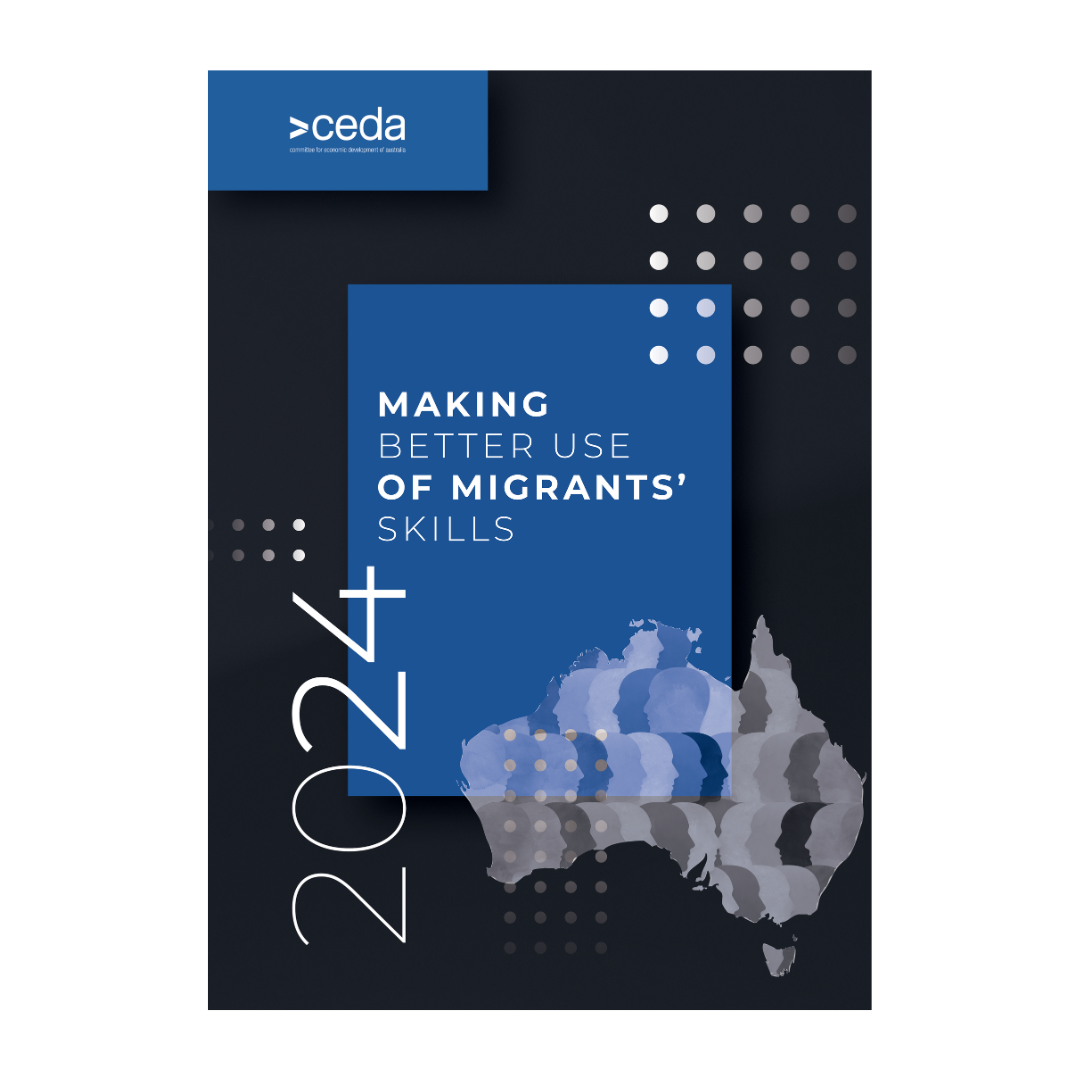Explore our Climate and Energy Hub
NEW CEDA REPORT: MAKING BETTER USE OF MIGRANTS' SKILLS
Australia is an immigrant nation. Around 30 per cent of the population was born overseas. But we are still failing to make the best use of migrants’ skills in our workforce. This is despite many migrants having been selected precisely for the skills and knowledge they bring in a system designed to target skilled workers.
Our failure to match the skills of migrants to the most appropriate jobs is holding back productivity at a time of historically weak productivity growth. In an economy facing widespread worker shortages, access to the right skills at the right time and getting the right people into the right jobs is critical.
We find that on average across all temporary and permanent visa types, recent migrants earn significantly less than the Australian-born population. This has worsened over time: the hourly wage gap between recent migrants and Australian-born workers increased between 2011 and 2021.


CEDA'S RESPONSE TO THE MIGRATION STRATEGY
CEDA has significantly influenced key elements of the Federal Government's Migration Strategy through its submissions and participation in consultative forums and will continue to work with the Government on outstanding areas of reform.
Released in December 2023, the Migration Strategy establishes a Skills in Demand visa, a Specialist Skills pathway, a single occupations list that will inform the Core skills pathway commits the government to developing an Essential Skills pathway for lower paid workers, specifically in the care sector alongside other commitments to plan over the longer term to better manage and plan for the migration intake and population more broadly.
Read CEDA's full response to the Migration Strategy our priorities and next steps.
WHY DOES IMPROVING AUSTRALIA'S MIGRATION SYSTEM MATTER?
Migration has delivered substantial benefits to the Australian economy and been critical to the nation’s success.
Historically, migrants have supplied a third of the increased skills requirements of the Australian economy. Given Australia’s ageing population we should expect this trend to accelerate in the future.
Australia needs a fit-for-purpose migration system. Substantial reform to both the temporary and permanent systems is necessary.
RECOMMENDATIONS
CEDA's key recommendations revolve around the two major areas of migration policy: the capped permanent migration system and the uncapped demand-driven temporary migration system. These recommendations include:
A fast-track for high paid, highly-skilled intra-company transfers
The Federal Government should introduce a dedicated streamlined path for intra-company transfers under the high wage, low risk visa stream. This would enable trusted users of the migration system to bring global employees and develop local workforce capability.
An essential skills visa
Australia should have a dedicated ‘Essential Skills Visa’ to allow care workers to directly migrate, with long-term residency opportunities. This would be for an area of critical need such as aged care, childcare, disability and healthcare.
A skills matching platform
CEDA research from 2019 found that a quarter of permanent skilled migrants are working in a job beneath their skill level 18 months after arrival. The Federal Government should develop a skills-matching platform for permanent skilled migrants and prospective employers to connect prior to arrival in Australia.

AUSTRALIA'S FUTURE MIGRATION SYSTEM
In response to the Discussion Paper for the Federal Government’s migration policy review released in November 2022, CEDA’s paper outlines future trends that Australia’s migration system will confront, the principles that should guide the future system and policy recommendations in line with these principles.
JOBS AND SKILLS SUMMIT – UNLOCKING SKILLED MIGRATION
In this paper published ahead of the Federal Government’s Jobs and Skills Summit, CEDA called for immediate reforms to the migration system.
This paper outlines proposed improvements to the skilled migration system in the immediate term, complemented by substantial reform in the longer term.


A GOOD MATCH: OPTIMISING AUSTRALIA'S PERMANENT SKILLED MIGRATION
Australia’s permanent skilled migration system is not realising its full economic potential: nearly a quarter of permanent skilled migrants in Australia are working in a job beneath their skill level.
As Australia recovers from recession, the system must be recalibrated to improve outcomes for migrants and the economy.
The changes CEDA recommends in this report would help ensure permanent skilled migration is satisfying the current skills needs of the Australian economy while making the entire migration system more efficient and effective.
EFFECTS OF TEMPORARY MIGRATION
This report examines the facts around temporary migration, its importance to business and the economic benefits it delivers to Australians.
While less often discussed than permanent migration, it is a significant and important part of Australia’s migration system.
Contrary to some concerns, our analysis shows that recent waves of migrants have not had an adverse impact on the wages or jobs of local workers.


